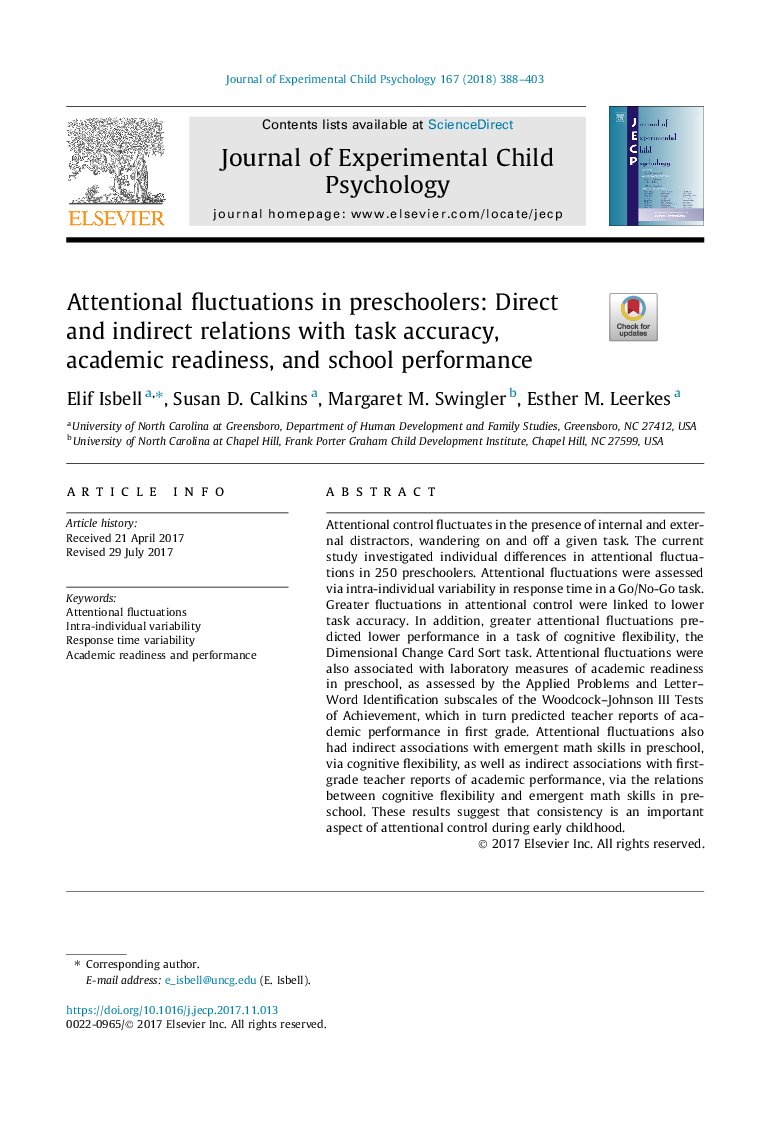| Article ID | Journal | Published Year | Pages | File Type |
|---|---|---|---|---|
| 7274177 | Journal of Experimental Child Psychology | 2018 | 16 Pages |
Abstract
Attentional control fluctuates in the presence of internal and external distractors, wandering on and off a given task. The current study investigated individual differences in attentional fluctuations in 250 preschoolers. Attentional fluctuations were assessed via intra-individual variability in response time in a Go/No-Go task. Greater fluctuations in attentional control were linked to lower task accuracy. In addition, greater attentional fluctuations predicted lower performance in a task of cognitive flexibility, the Dimensional Change Card Sort task. Attentional fluctuations were also associated with laboratory measures of academic readiness in preschool, as assessed by the Applied Problems and Letter-Word Identification subscales of the Woodcock-Johnson III Tests of Achievement, which in turn predicted teacher reports of academic performance in first grade. Attentional fluctuations also had indirect associations with emergent math skills in preschool, via cognitive flexibility, as well as indirect associations with first-grade teacher reports of academic performance, via the relations between cognitive flexibility and emergent math skills in preschool. These results suggest that consistency is an important aspect of attentional control during early childhood.
Related Topics
Social Sciences and Humanities
Psychology
Developmental and Educational Psychology
Authors
Elif Isbell, Susan D. Calkins, Margaret M. Swingler, Esther M. Leerkes,
